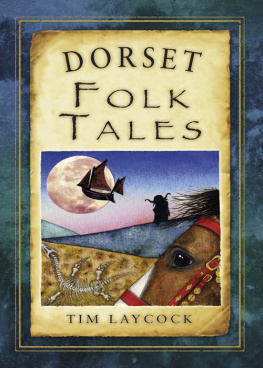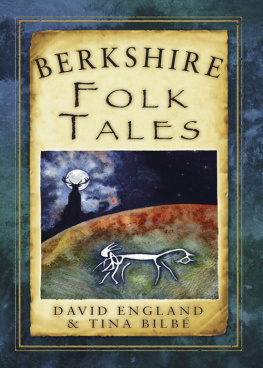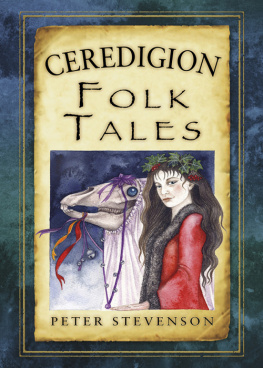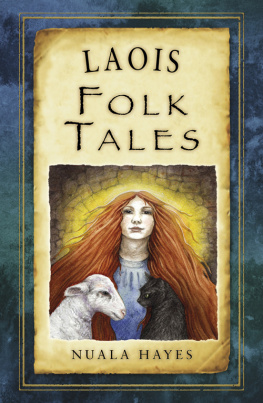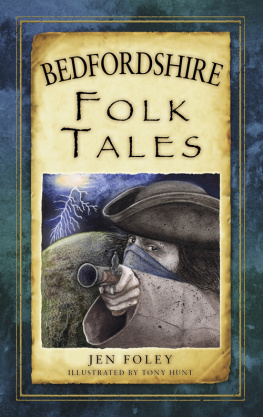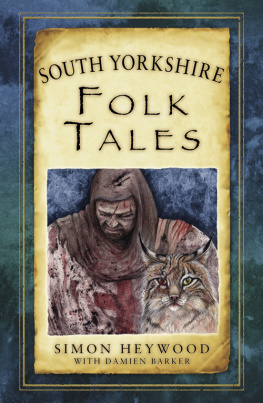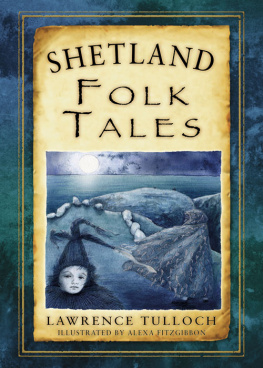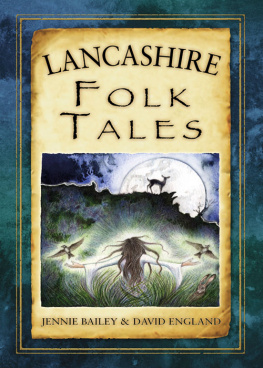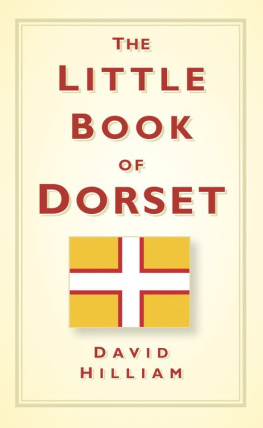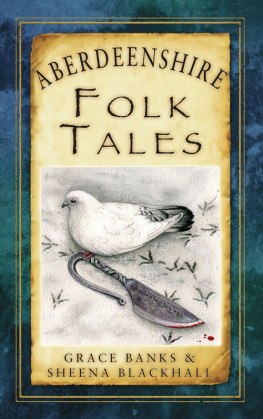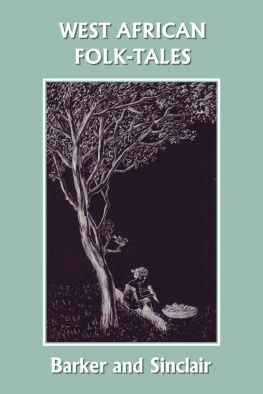C ONTENTS
I have gathered these stories and songs during a lifetime of living, working and playing in Dorset, and very often when I retell the tales and sing the songs I can see and hear the person who gave the story to me. Several of these stories come from people who were recognised as storytellers and performers in their own communities, such at Netta Taylor at Uploders; but most are from people who would never regard themselves as storytellers, but who value the oral history, village memories and anecdotes of their family, village or area. Many of the stories were collected while working in day centres on projects for ArtCare and Artsreach Dorsets Rural Touring Scheme; I would particularly like to thank Ian Scott and Angie Green of Artsreach, who supported two projects, one to collect stories in six Dorset villages, and the other, The Story Tree, to encourage and develop storytelling in the county. I have also spent a great deal of time performing stories in village halls, libraries and schools all over Dorset, and I would like to take this opportunity to thank the many teachers, librarians and village hall organisers who have helped to keep the oral history of Dorset alive; and to the audiences who have participated, often very actively, in these performances. The work that I have done in the county for Natural England, the Dorset Wildlife Trust, the National Trust and Dorset County Council has helped to contribute facts, stories and anecdotes to this collection for this I thank you. I would also like to acknowledge the Sting in the Tale Festival of Storytelling, held in Dorset during August, which continues to do a great job in encouraging storytelling of all kinds in the county.
The staff at the Dorset County Museum and the Dorset History Centre have provided help and directed me to many interesting aspects of Dorset folk life, and I would like to thank them, especially Roger Peers, the former curator at the County Museum, and Jon Murden, the current director.
William Barnes and Thomas Hardy were both deeply interested in the folk life of Dorset, and several tales in this collection either influenced their writing or are derived from their poems and stories. I would like to thank all my friends in the William Barnes Society, the Thomas Hardy Society and the New Hardy Players for the support and inspiration that they have provided.
The songs in this book are mostly from the folk song collection of the Hammond Brothers Robert and Henry which is lodged with the English Folk Dance and Song Society. I would like to acknowledge the tremendous help and inspiration that I have always received from the staff at the Vaughan Williams Memorial Library at Cecil Sharp House: in particular the librarian, Malcolm Taylor. He is a real enthusiast for traditional music and has been instrumental in getting all the Hammond songs onto the Take 6 website, where they are available for anyone who is interested in the old songs of Dorset.
I would like to thank Michelle Tilly for the lovely illustrations she has provided for this book. Thanks also to Angela Laycock; Douglas Laycock; Dorothy Coombes; Mr Chipp; Colin Thompson; John Hodgson; Pippa Brindley; Tracy Cooper; Lal Hitchcock; Christine Pfaff; Nancy Scott; Taffy Thomas; Sarah Harbige; Hannah Worthington; Sue Clifford and Angela King at Common Ground; and to all the people and places who have contributed tales and anecdotes to this collection. As William Barnes said:
Why, tidden vields an runnen brooks,
Nor trees in Spring an fall;
An tidden woody slopes an nooks,
Do touch us most of all;
An tidden ivy that do cling
By housen big an wold, O,
But this is, after all, the thing,
The pleace a teales a-twold o
Dorset is justly celebrated for its wonderfully varied landscapes, and the variety of stories, tales, legends and yarns to be found in the county is similarly diverse. I have been listening to legends, telling tales and making music in Dorset for many years now, and the stories here are a small selection of those told around the county. The oral tradition of stories, song, dance, customs and local lore still continues; after all, despite all the many and varied media attractions of the twenty-first century, there is nothing more compelling than a good tale well told. Many of the stories in this collection have been told to me at festivals, church events, village hall entertainments, even on street corners and of course, occasionally, in pubs. Particular mention should be made of the role of the Womens Institute in recording and keeping alive many fascinating stories, anecdotes and facts about village life in the area, that are very often stranger than fiction. In some cases the stories come originally from tellers of national repute such as Ruth Tongue; but mostly they are from Dorset folk who love their county and take a great interest in the past, present and future doings of their friends, acquaintances and former residents of their communities.
1
There were these two old farmers; one was coming from Sturminster market in his trap, while the other was going in his cart, with two pigs under a net. They met on that narrow bridge in Hammoon (you know where I mean?) and they stopped. Whoooaa!
Morning Benjamin, said James.
Mornin James, said old Ben.
Tell me, Ben, when your horse had the staggers and the gaspings last November, what did ee give him? asked the first farmer.
His neighbour replied, I give him an andful of ball bearings and a pint of axle oil.
Thankee Benjamin, much obliged, said the first, as he whipped up his horse and went on his way.
Three weeks later they met on the same bridge. Whooaaa!
Morning Benjamin, said James.
Mornin James, replied his neighbour.
Now Ben, do ee remember last time we met, I asked you what you gave your horse when it had the staggers and the gaspings, and you said you give him a handful of ball bearings and a pint of axle oil?
Ben replied that he did.
Well, says James indignantly, I done that, and my horse died!
Ben looked at him in amazement, Well, blow me, he exclaimed, thats queer! So did mine!

Stories about horses are still commonplace in Dorset, even though the vast majority of farmwork nowadays is done by machinery. There are plenty of horses still to be seen in the county, although most of them are much lighter than the old workhorses used on the farms. There was always a certain mystique attached to the art of horsemanship, and the curing of equine ills. One very unusual tale about a horse with magical powers was told to Ruth Tongue by D. Barnett of Broadstone in 1928, when the majority of farmwork in Dorset was still horse- and steam-powered.

At one time there were orchards all over Dorset. Every village, every farm, had them. There was an old widow who lived down near Wareham, she had two orchards that produced wonderful apples every autumn; so many, that she had to get her friends and neighbours to come round to help pick them. They were the most delicious apples that anyone had ever tasted, and thats saying something. When she took them into Wareham market to sell them, she made enough money to keep her comfortable for the rest of the year.
This old widow was very old-fashioned, and kept up the old ways. Every night she would put out a bowl of cream and another of spring water, for she knew that there were those who guarded orchards, and she wanted to do right by them.
Some folk thought she put the cream out for the birds, or the hedgehogs, or the badgers that came snuffling through at night; but you and I know it was for Lazy Lawrence, a dainty little colt-pixie that lived in those parts. Strange name for such a lively creature really; he could run like the wind, and jump hedges as if they were only inches high. Very few people had ever seen him, but more than a few boys and girls had felt the nip of his teeth when they crope into orchards at night to scrump a few apples. You couldnt make the slightest sound if you wanted to scrump, because Lazy Lawrence would hear you and come at a gallop. Most importantly, whatever you did, you could never look into his eyes. Blazing green, they were, and if once he caught you in his gaze, youd be transfixed to the spot until he pleased to let you go. Thats why the older folk knew a rhyme that went:

